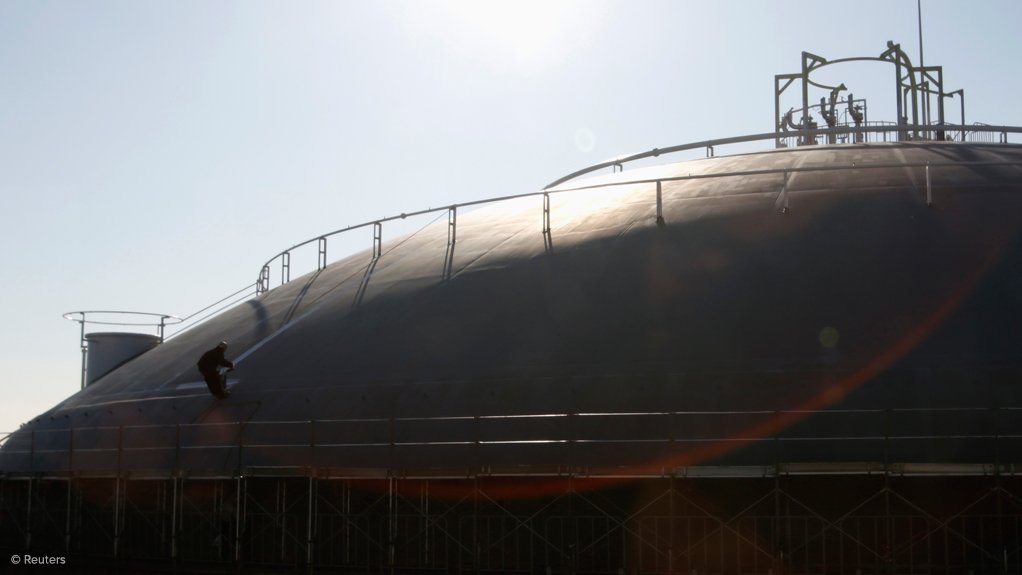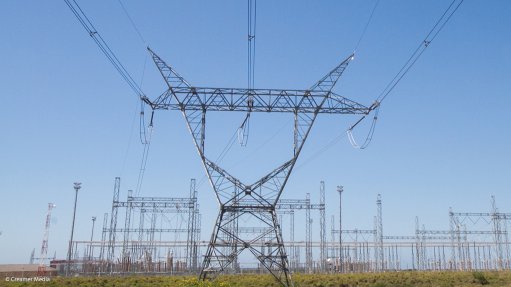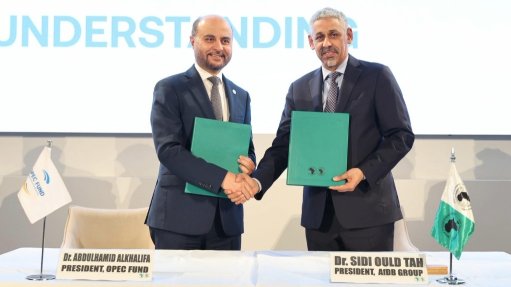Power sector’s gas demand ‘insufficient’ to act as anchor in South Africa
There is insufficient demand for gas in the power sector to “anchor” demand for the fuel in the broader South African energy sector, as gas will have only a limited peaking support role in a system transitioning from coal to renewables, analysis by Meridian Economics shows.
Presented by Meridian’s Adam Roff this week, the analysis notes that gas-to-power’s anchor role was based on a position taken in the 2012 National Development Plan (NDP) that large-scale gas would be required to balance the “potentially higher costs” of variable renewable energy.
The NDP predated the “plunge” in the cost of wind and solar photovoltaic technologies, which have since emerged as the lowest-cost generation options.
“Gas was a viable alternative to coal, until a more viable alternative emerged,” Roff explained during a webinar hosted to discuss ‘The Role of Natural Gas as a Transitionary Fuel in Southern Africa’.
He warned that ignoring these new realities would prove costly, as its modelling showed that operating the 3 GW gas-to-power fleet included in the Integrated Resource Plan at a capacity factor of 50% to 55% would cost R5.7-billion more every year to produce 14.5 TWh, than deploying such plants as peakers, with a capacity factor of between 3% and 5%, in support of renewable generators.
Yearly emissions from the large-scale solution would also be far higher at 7.6-million tons, than the 1.1-million tons that would be produced from the peakers.
This emission differential, Roff said, had become increasingly important in light of South Africa’s updated Nationally Determined Contribution and aspiration to net zero emissions by 2050, which sets it on a decarbonisation trajectory that reduced the country’s carbon space by between 30% and 50% relative to its previous commitment.
Based on a peaker production profile, Meridian estimates that South Africa’s total gas demand from the power sector will be between 25 PJ and 40 PJ by 2030, and that only if all new and existing peaker plants, including Eskom and private open cycle gas turbines (OCGTs), are switched over to gas.
“This raises questions about the viability of liquefied natural gas (LNG) contracting, given that LNG suppliers typically require larger volumes.”
Meridian argues that South Africa should, therefore, adopt a cautious approach to gas, which is “no longer a transition fuel in the power sector” or a “rational replacement for coal”.
Gas could possibly replace some diesel at the OCGTs “on a path to hydrogen or other emission-free peaking technology”, but gas storage would have to be considered given that the volumes would be below the level required for regular LNG shipments.
Speaking during the same webinar, Boston Consulting Group’s Kesh Mudaly reported that an analysis it conducted for the National Business Initiative (NBI) concluded that gas would be required during the transition, but only in limited volumes in the electricity sector.
The NBI study shows that South Africa’s yearly gas demand could be between 230 PJ and 550 PJ by 2030, with much of that demand arising from the synthetic fuels sector, which is keen to displace coal with gas.
The analysis concludes that South Africa should opt for flexible and short payback LNG infrastructure to support a faster scale-up of renewables, but with a view to replacing gas with batteries and green hydrogen from 2030 onwards.
There were, however, likely to be benefits in switching the existing peaker plants from diesel to gas, which could yield cost savings of between R14-billion and R28-billion against capital expenditure and stranded-asset costs of about R10-billion.
African International Advisors’ Henry Gilfillan, who is working on a gas master plan for the Southern African Development Community, urged South Africa to adopt a regional perspective to the transition when assessing a role for gas in that transition.
He argued that low-cost gas-to-power projects built in northern Mozambique, for instance, could be unlocked through an investment of between $100-million and $150-million and could complement an accelerated renewables roll-out.
Likewise, Namibian gas to power could add synchronous generation that could unlock grid capacity for renewables in the Northern Cape.
“We need to focus on moving gas generated electrons, rather than molecules,” Gilfillan argued.
Article Enquiry
Email Article
Save Article
Feedback
To advertise email advertising@creamermedia.co.za or click here
Comments
Press Office
Announcements
What's On
Subscribe to improve your user experience...
Option 1 (equivalent of R125 a month):
Receive a weekly copy of Creamer Media's Engineering News & Mining Weekly magazine
(print copy for those in South Africa and e-magazine for those outside of South Africa)
Receive daily email newsletters
Access to full search results
Access archive of magazine back copies
Access to Projects in Progress
Access to ONE Research Report of your choice in PDF format
Option 2 (equivalent of R375 a month):
All benefits from Option 1
PLUS
Access to Creamer Media's Research Channel Africa for ALL Research Reports, in PDF format, on various industrial and mining sectors
including Electricity; Water; Energy Transition; Hydrogen; Roads, Rail and Ports; Coal; Gold; Platinum; Battery Metals; etc.
Already a subscriber?
Forgotten your password?
Receive weekly copy of Creamer Media's Engineering News & Mining Weekly magazine (print copy for those in South Africa and e-magazine for those outside of South Africa)
➕
Recieve daily email newsletters
➕
Access to full search results
➕
Access archive of magazine back copies
➕
Access to Projects in Progress
➕
Access to ONE Research Report of your choice in PDF format
RESEARCH CHANNEL AFRICA
R4500 (equivalent of R375 a month)
SUBSCRIBEAll benefits from Option 1
➕
Access to Creamer Media's Research Channel Africa for ALL Research Reports on various industrial and mining sectors, in PDF format, including on:
Electricity
➕
Water
➕
Energy Transition
➕
Hydrogen
➕
Roads, Rail and Ports
➕
Coal
➕
Gold
➕
Platinum
➕
Battery Metals
➕
etc.
Receive all benefits from Option 1 or Option 2 delivered to numerous people at your company
➕
Multiple User names and Passwords for simultaneous log-ins
➕
Intranet integration access to all in your organisation





















